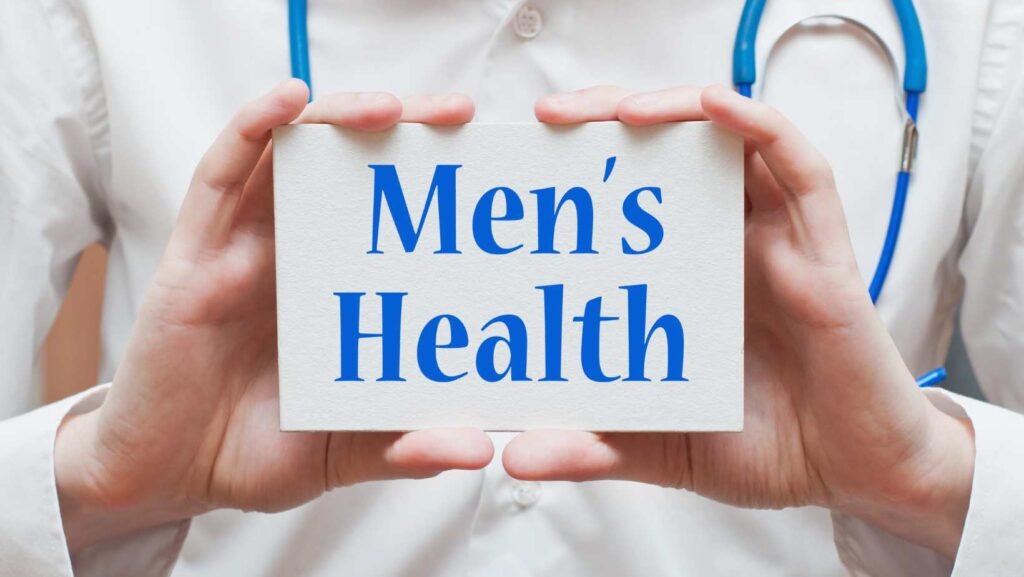In today’s fast-paced, high-pressure world, achieving true health is about more than lifting heavy or eating clean it’s about power and balance. Modern men face a unique set of health challenges: demanding jobs, family responsibilities, mental health struggles, and physical expectations. The key to thriving isn’t found in extremes, but in a well-rounded, informed approach to wellness.
Power & Balance is your complete guide to men’s health in 2025 and beyond—covering fitness, nutrition, mental wellbeing, sexual health, and daily lifestyle choices that support long-term vitality. Whether you’re in your 20s or 50s, this article will help you optimize your health with practical advice and proven strategies.
Table of Contents
-
What Is Men’s Health Really About?
-
The 5 Pillars of a Balanced Health Strategy
-
Fitness for Men: More Than Just Muscle
-
Nutrition: Fueling Power Without the Fads
-
Mental Health: Breaking the Silence
-
Hormonal Health: Testosterone & Balance
-
Sexual Health & Performance
-
Sleep, Stress, and Recovery
-
Daily Habits That Boost Men’s Health
-
Final Thoughts & Action Plan
1. What Is Men’s Health Really About?
Men’s health isn’t just about physical strength. It encompasses everything from heart health, hormonal balance, and sexual function to mental clarity and emotional resilience.
While men are biologically prone to certain conditions—like heart disease, prostate cancer, and testosterone decline—many of these risks can be reduced through lifestyle choices.
Power represents strength, energy, and drive.
Balance represents mental wellness, sleep, recovery, and emotional stability.
Together, they create a sustainable path to real health.
2. The 5 Pillars of a Balanced Health Strategy
To achieve total wellness, focus on these 5 core areas:
-
Physical Fitness – Building strength, mobility, and cardiovascular health
-
Nutrition – Eating for energy, hormones, and longevity
-
Mental Wellness – Managing stress, anxiety, and depression
-
Hormonal Health – Supporting testosterone, metabolism, and libido
-
Lifestyle & Recovery – Sleep, relationships, and purposeful habits
Neglecting one affects the others—true health is holistic.
3. Fitness for Men: More Than Just Muscle
Gone are the days when six-pack abs defined fitness. In 2025, smart training beats heavy lifting. Here’s what every man should focus on:
Strength Training
-
Build lean muscle to support joint health, posture, and metabolic function.
-
Train 3–4 days a week using compound movements (squats, deadlifts, pull-ups).
Cardiovascular Health
-
Add 2–3 days of cardio (HIIT, jogging, cycling) to reduce heart disease risk.
Mobility & Flexibility
-
Don’t skip mobility. Foam rolling, stretching, or yoga improves recovery and prevents injury.
Consistency > Intensity
-
You don’t need 2-hour workouts just 45 quality minutes, 4–5 times per week.
4. Nutrition: Fueling Power Without the Fads

Forget restrictive diets. Men need a balanced, sustainable approach that supports muscle, energy, and hormone function.
Macronutrient Focus
-
Protein: 1.2–2g per kg of body weight. Supports muscle and hormone production.
-
Fats: Healthy fats (avocados, olive oil, nuts) support testosterone and brain health.
-
Carbs: Essential for energy, especially if you’re active.
Whole Foods First
-
Prioritize lean meats, fish, eggs, whole grains, vegetables, and fruits.
-
Limit sugar, fried foods, and processed snacks.
Hydration & Supplements
-
Drink at least 2.5–3L water/day.
-
Consider vitamin D, omega-3, zinc, magnesium, and creatine for performance and recovery.
5. Mental Health: Breaking the Silence
Mental health is the backbone of balance. Yet, many men still avoid talking about stress, depression, or burnout due to stigma.
Common Challenges for Majojen:
-
High-pressure jobs
-
Financial stress
-
Relationship conflicts
-
Emotional repression
Signs You Need Support:
-
Mood swings, irritability
-
Lack of motivation
-
Sleep disturbances
-
Loss of interest in daily activities
Tools to Improve Mental Wellness:
-
Daily journaling or mindfulness meditation
-
Regular physical activity
-
Speaking to a therapist or joining support groups
-
Prioritizing hobbies and social connection
Strong men ask for help. Seeking support is not weakness it’s smart health management.
6. Hormonal Health: Testosterone & Balance
Testosterone levels in men have declined significantly over the last 40 years due to lifestyle, diet, stress, and environmental toxins.
Symptoms of Low Testosterone:
-
Fatigue
-
Low libido
-
Difficulty building muscle
-
Mood changes
-
Increased belly fat
Natural Ways to Boost Testosterone:
-
Sleep 7–9 hours per night
-
Strength training 3–4 times per week
-
Eat enough healthy fats and protein
-
Reduce alcohol, sugar, and processed foods
-
Manage stress and avoid overtraining
For those with clinically low levels, Testosterone Replacement Therapy (TRT) may be an option—but always consult a hormone specialist first.
7. Sexual Health & Performance
Sexual health is a vital part of overall well-being. It’s not just about performance—it’s also about confidence, connection, and physical health.
Key Factors Affecting Sexual Health:
-
Hormonal levels (especially testosterone)
-
Cardiovascular health (blood flow = performance)
-
Mental state (stress and anxiety)
-
Sleep quality
Boosting Performance Naturally:
-
Regular exercise
-
Heart-healthy diet
-
Open communication with your partner
-
Avoiding smoking and excess alcohol
-
Pelvic floor exercises (yes, even for men!)
If issues persist, don’t ignore them—speak to a urologist or men’s health specialist.
8. Sleep, Stress & Recovery
Sleep is often the most overlooked pillar of men’s health—but it directly affects hormones, immunity, mood, and performance.
Why Sleep Matters:
-
Testosterone is produced during deep sleep
-
Poor sleep increases cortisol (stress hormone)
-
Recovery, fat loss, and muscle growth happen while you rest
Tips for Better Sleep:

-
Stick to a regular sleep schedule
-
Avoid screens 1 hour before bed
-
Limit caffeine after 2 PM
-
Try magnesium or herbal teas (e.g., chamomile)
Stress, if left unchecked, becomes toxic. Balance workouts with recovery. Don’t just grind—rest is productive too.
9. Daily Habits That Boost Men’s Health
Great health isn’t built overnight—it’s built daily through smart routines and habits.
Daily Health Checklist:
-
🚶 Move your body (even a 20-minute walk counts)
-
🍳 Eat a high-protein breakfast
-
🧘 Spend 5–10 minutes on mindfulness
-
💧 Drink water before coffee
-
📴 Take social media breaks
-
🛏 Sleep before midnight
-
📚 Read or learn something new
-
❤️ Connect with friends/family
Your routine doesn’t need to be perfect—just consistent.
10. Final Thoughts & Action Plan
Power & Balance is more than a slogan—it’s a health philosophy. True strength doesn’t come from lifting the most weight or following the latest trend. It comes from:
-
Being mentally resilient
-
Fueling your body with purpose
-
Training intelligently
-
Sleeping deeply
-
Connecting with your purpose
✅ Take Action Today:
-
Pick one area (sleep, training, food, stress) and improve it this week.
-
Schedule a health checkup or blood test if it’s been a while.
-
Join a local fitness group or online men’s wellness community.
-
Set a goal: not just for your body, but for your whole life.
Final Words
In 2025, men’s health is not about extremes—it’s about balance, clarity, and control. The sooner you start investing in your well-being, the stronger, sharper, and more fulfilled you’ll feel—not just today, but for decades to come.
Stay strong. Stay balanced. Live powerfully.
SEO Keywords (Naturally Used in Content):
-
Men’s health guide
-
Testosterone and men’s health
-
Fitness tips for men
-
Mental health for men
-
Sleep and hormone balance
-
Healthy habits for men
-
Daily men’s wellness routine
-
Best diet for men’s energy

